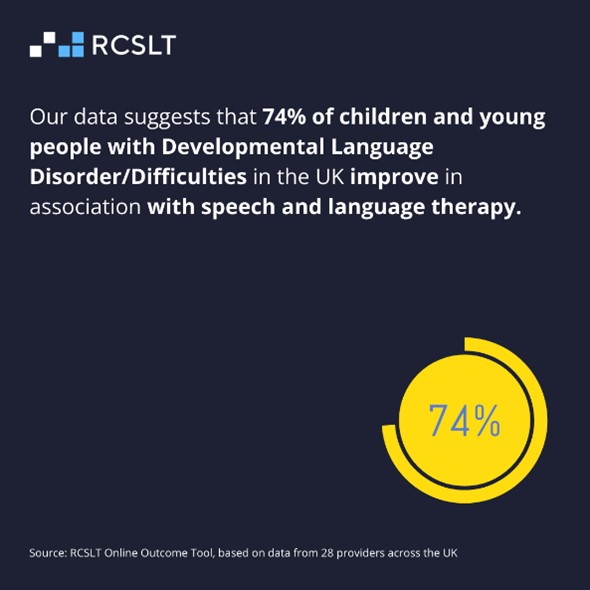18 October 2024
To mark Developmental Language Disorder (DLD) awareness day, we’re looking at how the DLD vision launched last year, has been shaping our work and how the RCSLT is raising awareness this DLD Awareness Day, 18 October
Last October saw the launch of a sector-wide Vision for Developmental Language Disorder (DLD). Co-produced with people with lived experience of DLD, the vision sets out the long-term journey to a DLD-friendly society. Over the past year, the RCSLT have been focusing our efforts on bringing to life one of the five ambitions which complete the Vision – ‘Access support easily’, helping to ensure that the sector is equipped to offer anyone with DLD fair access to the right support at the right time. Focussing on creating consensus and setting the standards of good practice, this ambition has reached into multiple areas of our activities across the country.
Setting research priorities
Together with Moor House Research & Training Institute and UCL, we’re working on the second phase of the DLD research priorities project, which will determine the top ten most important research questions in DLD. Led by a steering group of adults with DLD, clinicians and researchers, the project will engage all key stakeholders to identify and prioritise research questions across 4 areas of the DLD vision: assessment & diagnosis; intervention; schools & workplaces; independence. These priorities will then be shared with researchers and funding bodies to encourage future research projects.
Raising awareness
New therapy outcomes measures (TOMs) data on DLD gathered across the UK through the RCSLTs Online Outcome Tool (ROOT), will also be shared via our social media channels @RCSLT X and Instagram on 18 October.

In Northern Ireland, we’ll be in Stormont on DLD Awareness Day itself, hosting an event called Speak up for DLD. Speakers will include the Northern Ireland Children’s Commissioner, Dr Jenny Gibson (Engage DLD), and the CAPHO. We are delighted to have two young adults with DLD speaking about their experiences and pathways to employment the focus will be on positive outcomes when a person with DLD is well support in school and beyond. We’ll also be meeting with examination body, CCEA to discuss language modification for pupils with speech, language and communication needs, including DLD.
Likewise, our Wales team have recently met with the WJEC (Welsh examinations board) and hosted a stand with RADLD at the Senedd on 15 October to raise awareness of DLD with Senedd Members and officials. Look out for updates including Wales-specific data from the RCSLT’s ROOT tool, available in Welsh and English on @RCSLTWales X channel.
In Scotland, we’ll be holding ‘DLD and Tea’ events. Speech and language therapists will chat with their health and education colleagues about Developmental Language Disorder over tea and cake, with participants encouraged to share pictures of their events on social media with us. RCSLT staff will judge the entries and announce the overall winner.
More information about DLD
If you want to find out more about DLD and the role of speech and language therapy, or are looking for resources to share with service users, there are lots of options available across the RCSLT.
Listen to our podcast
The RCSLT podcast has produced several episodes covering various aspects of Developmental Language Disorder. Last month, we spoke to the author of the IJLCD article Collaborative working with parents to support children with DLD.
You can listen again to our 2023 DLD day podcast special, exploring what DLD is and featuring interviews with people with lived experience of DLD, or learn more about the Impact of DLD on jury perceptions.
Guidance and Factsheets
Factsheet on DLD – Printable resource to share
View our online Clinical Information for non-SLTs about DLD (public)
Networks and groups
Review our CEN directory to see all the clinical excellence networks currently registered with the RCSLT which cover DLD
